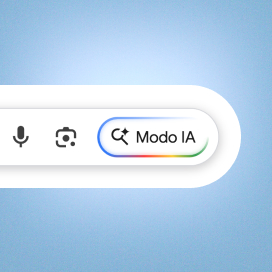Written by Fernando Maciá
If ranking high in search engines such as Google, Yahoo, MSN Search or AltaVista for certain key concepts has become your obsession, let your mind go blank and reflect for a moment: to be at the top of the search results for those concepts… is it really your goal? … or rather a means to connect with your potential audience, i.e. to get qualified traffic to your website? What’s more, what are the real chances that your potential customers will type exactly those concepts in the search engine where you rank at the top for them?
Beware of positioning strategies
Once the vast majority of website administrators have accepted that search engine marketing is the most profitable long-term strategy for attracting a qualified audience on the Internet, companies that provide web optimization, submission and search engine positioning services have embarked on a race to promise top positions for their clients in five, ten, fifteen specific search terms… whatever the field of activity of the website to be positioned. This raises some doubts from the beginning, because a website dedicated to the dissection of tropical butterflies, for example, will most likely be much easier to position in concepts related to this topic than one dedicated to real estate, where competition is much higher. Caution is therefore called for when judging the results promised by companies working in positioning, since two things can happen:
- In order to fulfill its top ranking commitments, the search engine optimization company selects search terms that are so unique and specific that, even if it achieves top rankings on them, the actual chance of a potential customer performing a search on them is remote.
- That the client demands a positioning in such generic terms and where the competition is so fierce that the search engine optimization company is not able to fulfill its promises of first positions in the search engines, in spite of applying all its knowledge and experience correctly.
This forces us to evaluate whether the control mechanism for the success or failure of a search engine positioning strategy is adequate or not. In most cases, search engine optimization companies justify the success of their work through positioning reports, where, for the selected search terms, the positions achieved in each of the chosen search engines are shown. These reports are generated automatically by certain computer programs that perform each search in the different search engines and detect where a page of the website to be positioned has appeared. This report is usually the basis on which the client judges the success or failure of the positioning strategy. Which brings us to the question we initially posed: is positioning a goal in itself or a means to obtain qualified traffic?
Prioritize web traffic
From my point of view, getting qualified traffic is the ultimate goal of any digital marketing strategy: from search engine optimization to on-line advertising, e-mailing strategies, permission marketing, pay per click, etc. So we should look for the measure of success or failure of any of these strategies – search engine optimization included – in the web traffic reports and not in search engine positioning reports. While the latter are a useful tool to get an idea of where our website appears under certain search terms, the touchstone of our website’s performance on the Internet is really the traffic statistics report. And this for very specific reasons:
- Potential customers of your website may arrive with such a variety of search terms, expressions, concepts, synonyms, plurals, misspelled words… that they simply it is impossible that a positioning in ten, fifteen or twenty specific search terms is enough to cover the wide and unpredictable spectrum of expressions that can make a potential customer land on our website from Google or Yahoo.
- Your website’s potential customers can come from such a wide variety of places on the Internet that reducing the origin of their visits to search engines means underestimating other important fishing grounds where it would also be worthwhile to fish for them: forums, articles, e-mail, newsletters, recommendations, chats, blogs, local or sectorial search engines… Although it is true that Google is in most cases 75% of the referrers of a website, references to your website from forums, chats, articles, etc. weigh in the positioning that Google gives to your website. A proper search engine optimization strategy will take into account the contribution that these other types of websites can make to search engine optimization, as well as the role they can play as primary sources of qualified traffic.
- The positioning report tells us in which positions we appear in the search engines selected by us under the concepts selected by us. Traffic statistics tell us where we ranked in the search engines that our customers chose searching for the concepts that they entered.
- The positioning report tells us where we rank but gives us few clues as to how to improve these rankings. The web traffic report can tell us which terms and search engines give us the highest number of visits, and even which ones produce the highest conversion rate to customers. This gives us continuous feedback that allows us to fine-tune the selection of the most effective search terms and search engines.
- The traffic report allows us to analyze the evolution of interest in a given search term and the future trend (for example, in the search for apartments in a given neighborhood). This allows us to incorporate new concepts – where it is easier to obtain a good positioning because there is less competition, but where the concentration of potential customers is greater.
- The traffic report reveals other referents of interest for our website: forums, chats, blogs, etc., which allows us to broaden our search engine positioning strategy and have a more global vision of the meaning of the promotion of qualified traffic on the web.
Getting qualified traffic, that is, traffic interested in the products or services we offer on our website and likely to become new customers is the ultimate goal of any digital marketing strategy. As part of this strategy, search engine optimization cannot be reduced to positioning a website for a series of very specific concepts in a certain mix of search engines selected a priori. Rather, it should focus on a more global vision where, through web optimization, search engine submission, participation in chats and forums, inclusion in value-added portals, publication of articles and contribution of content, a consistent presence is achieved in a wide variety of search concepts in most search engines. A prolonged Internet activity from this global perspective, introducing modifications and improvements continuously based on the feedback measured in web traffic statistics, is the best bet to consistently obtain measurable and profitable results from our Internet presence.




